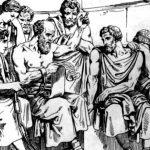
“Critical thinking is thinking about your thinking while you’re thinking in order to make your thinking better.” ~Richard Paul “The over-whelming preponderance of people have not freely decided what to believe, but, rather, have been socially conditioned (indoctrinated) into their beliefs. They are unreflective thinkers. Their minds are products of social and personal forces they neither understand, control, nor concern themselves with. Their personal beliefs are often based in prejudices. […] Read more »








